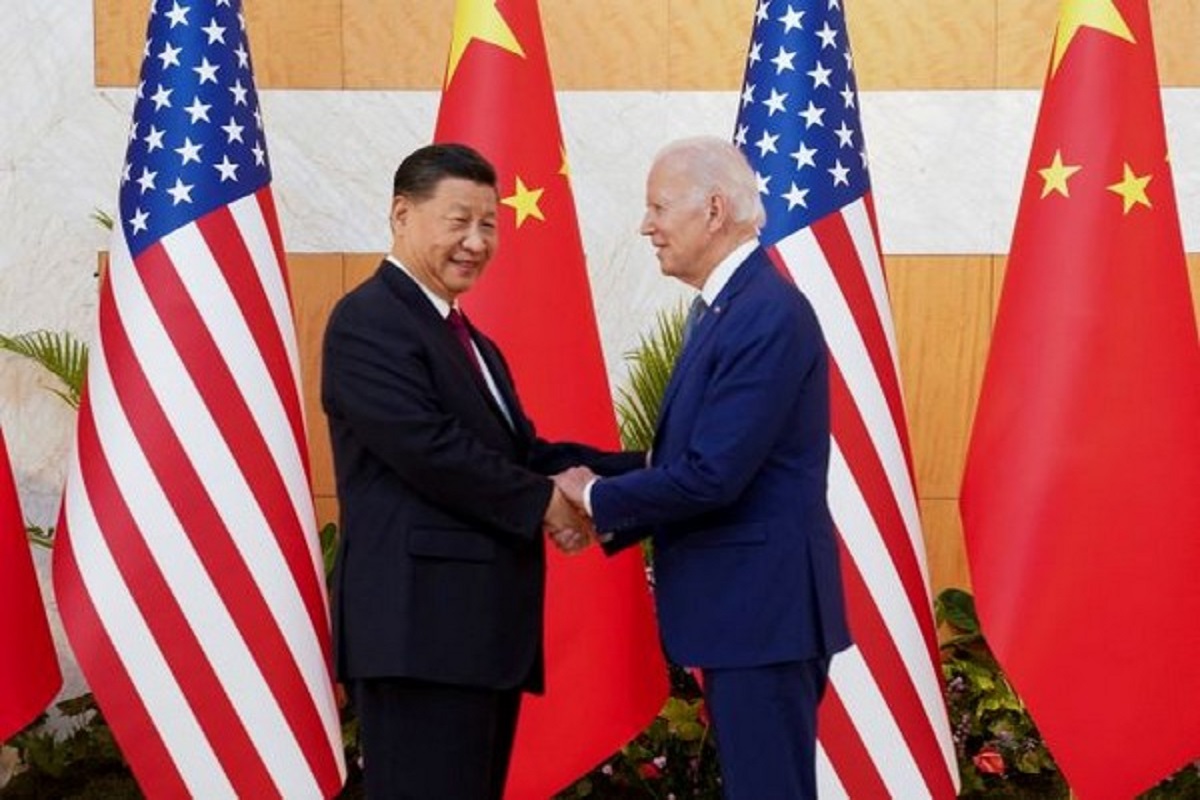Parting shot
The outgoing Biden Administration’s authorisation for Ukraine to carry out long-range missile strikes against Russian targets using US weaponry signals a significant escalation in the on-going conflict.
The Asia-Pacific Economic Cooperation leaders’ summit next month in San Francisco will be watched closely by many. American President Joe Biden and Chinese President Xi Jinping are scheduled to meet on the sidelines of the summit at a time of extreme volatility in the international system.

File Photo: ANI News
The Asia-Pacific Economic Cooperation leaders’ summit next month in San Francisco will be watched closely by many. American President Joe Biden and Chinese President Xi Jinping are scheduled to meet on the sidelines of the summit at a time of extreme volatility in the international system. Both leaders, acutely aware that the world’s eyes will be on them, have had their respective advisors consult extensively over the past five months in preparation for the meeting. China expert Ryan Hass, meanwhile, has argued in a recent article that the US-China relationship in recent months has shown signs of stabilising, at least on the surface.
While several factors have contributed to this seeming flattening of the trajectory, Hass flags two in particular. First, there is an alignment in expectations. Neither Washington nor Beijing holds false hopes of breakthroughs or dramatic improvements in relations. Secondly, leaders in both countries ~ each for their own reasons ~ see the benefit of capping tensions at current levels. The resumption of Sino-US high-level engagement has restored several protocols that previously supported stability and predictability in relations, say experts.
These include a reciprocal commitment to ‘no surprises’ in managing relations even as both sides continue to take actions they view as protective but the other side views as unfriendly; they have each previewed their actions privately to the other side in advance to clarify the intentions and limits of their respective approaches. Both sides have also set up diplomatic channels to address specific issues, such as export controls, commercial disputes, and strategic concerns.
Advertisement
Washington and Beijing have additionally resumed coordinating with each other on global crises, such as the outbreak of hostilities between Israel and Hamas, even though they don’t agree with each other’s positions. But it would be a mistake to believe tensions have subsided. Under the surface, the challenges in the relationship remain as tough as ever and the increased frequency of communication has not yielded convergence around key issues. Instead, adds Hass, Washington and Beijing have settled into a period of communication without concessions in either direction. It is against this backdrop that Mr Biden and Mr Xi will meet in November.
As for outcomes, the Chinese side is expected to want to project to their domestic audience that Mr Xi is received by President Biden with “dignity and respect”. For Beijing, the idea is to highlight both leaders engaging amicably with each other and investing personally in guiding the relationship. Nothing substantive, though, as President Xi has shown in his actions and words that his assessment that the US doing all it can to curb China’s growing power remains unchanged. For President Biden, fighting age-related ill health and trying to prevent wars in Ukraine and Gaza going against American interests, getting something concrete is vital as the USA heads into election year.
The lowest hanging fruit in this respect is to press for reducing the flow of fentanyl precursor chemicals from China as fentanyl-related deaths are now the leading cause of death for Americans aged between 18 and 45. As for the long-term strategic competition between the two powers, that is likely to continue apace.
Advertisement